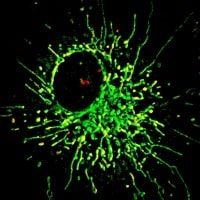Scientists have keyed in on a chemical signal referred to as “IL-10” in an attempt to combat inflammation caused by colitis. Colitis is a condition that impacts the gut. The immune system combats the body’s microbes, spurring inflammation. Though it has been known for some time that IL-10 performs an important role in keeping inflammation under control and warding off colitis, scientists are uncertain as to how and why this occurs.
About the Study
The findings of a new study pertaining to colitis and IL-10 were recently published in Science. The study’s senior author, an immunobiologist named Ruslan Medzhitov, led his research team in the quest to study inflammatory responses in mice and individuals lacking the IL-10 signal.
The research team determined IL-10 functions by blocking immune cell metabolisms. These immune cells are a component of the inflammatory response. The research team also found that IL-10 clears out compromised mitochondria. Mitochondria is the power generator found within each cell. The buildup of such cell damage results in the promotion of inflammation.
Why the Findings are Important
The research team’s findings enhance the understanding of a critical process in inflammation. Their determination has the potential to lead to therapies that pinpoint the pathway in colitis. Furthermore, the study’s results will likely prove important for treating or preventing degenerative diseases caused by the aging process and cell damage.




